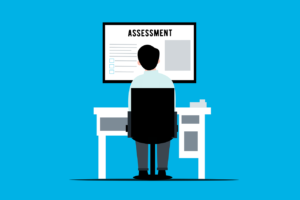Think It’s Just Aging? Dementia Often Missed for 3.5 Years
Many people don’t get diagnosed with dementia until 3½ years—or more—after symptoms start, especially younger adults.
That’s the tough reality revealed by a global review of over 30,000 dementia cases, conducted by University College London researchers and published recently in the International Journal of Geriatric Psychiatry. On average, people faced a 3.5-year delay between noticing symptoms and receiving a formal diagnosis—and for early-onset dementia, the wait stretched to 4.1 years.
Why the Delay?
Several factors contribute to this troubling lag:
- Age and type of dementia — younger patients and those with less-common dementia types often go undiagnosed longer.
- Systemic healthcare issues, such as limited access to specialists, long wait times, and under-resourced diagnostic pathways.
- Cultural and sociological barriers, including stigma and low awareness—particularly in communities where dementia isn’t openly discussed.
The Human Cost of Late Diagnosis
Amazon Books & Videos
about Alzheimer’s and Dementia:
FREE Newsletter:
Delays in identifying dementia mean lost time for timely interventions—such as the recently approved anti-amyloid therapies, which work best when started early in the disease process. Such delays also mean that families and caregivers miss crucial opportunities for planning, support, and symptom management.
Moreover, recent evidence underscores that as many as half of mild cognitive impairment (MCI) cases go undetected—meaning many people are slipping past the point where early detection can make a meaningful difference.
What We Can Do: Steps Toward Timely Diagnosis
- Raise public awareness — Dementia symptoms shouldn’t be dismissed as “just aging.” Education campaigns can help people—and their loved ones—recognize early warning signs.
- Train clinicians and expand access — Equipping primary care providers with tools to spot early cognitive decline—and simplifying referral processes—can save precious years.
- Reduce stigma and cultural barriers — Encouraging open conversations in diverse communities can help individuals come forward sooner, without fear or shame.
- Boost the healthcare infrastructure — Increasing access to diagnostic tools (PET scans, cognitive assessments, blood/bio-marker tests), especially in underserved regions, is crucial.
Call to Action
Let’s not let more years slip by. If you—or someone you care about—notice memory changes, language difficulties, or shifts in thinking, don’t wait. Speak up. Ask your doctor for a cognitive screening. Early action preserves quality of life—and hope.











